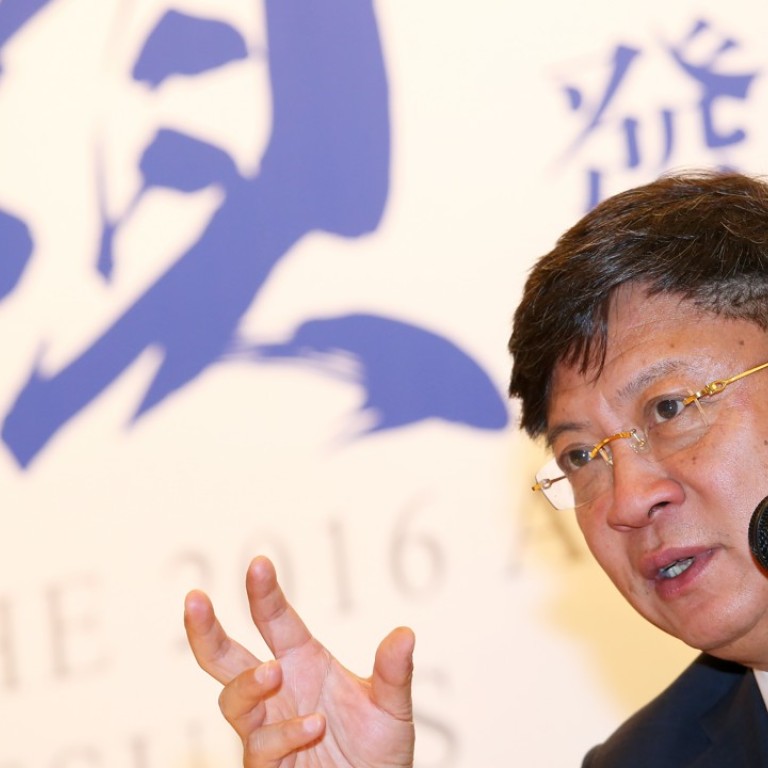
Sunac China shares are up 400pc year to date, but bullish investors see even more upside
Aggressive expansion and heavy debt are nothing to worry about – at least for investors in Sunac China.
The Chinese property developer, which specialises in luxury flats, saw its Hong Kong-listed shares reach an all time high for a fifth day on Friday, jumping 12.4 per cent to HK$33.5, giving it a record market value of HK$138.5 billion.
In fact, it is one of the best performers on the Heng Seng Index this year, gaining 400 per cent year-to-date. As a result, the personal wealth of its chairman, Shanxi-born real estate magnate Sun Hongbin, quintupled to roughly HK$57 billion from HK$10 billion at the beginning of the year.
The huge share price gains stand in contrast to the company’s first-half results, which generated only 1.3 billion yuan in profit, but was actually a loss when one-off gains from mergers and acquisitions were excluded. Net gearing almost doubled to 394 per cent, the highest among its peers.
But analysts said investors are bullish because they believe Sunac is following the path of industry leader China Evergrande and is set to see significant profit growth in 2018 and 2019.
“Sunac will be the next Evergrande,” said Liu Feifan, a property analyst at Guotai Junan International.
Both developers are known for their debt-fuelled, fast pace expansion. Evergrande, mainland China’s largest developer by sales, posted a respectable interim net gain for the first time this year after its strong nationwide sales during the property boom in 2015 and 2016 started to contribute to earnings.
Similarly, although Sunac had good contracted sales in the past few years, that was not reflected in its earnings due to booking delays.
Liu said that was because Sunac’s booking of sales is slower than rival Country Garden and Evergrande, usually taking 2.5 to 3 years, as many of its projects are located in northern China. This means they take longer to complete due to the suspension of construction during the winter season.
“The company will start to unlock its profit in 2018, and the profit is likely to reach 20-30 billion yuan in 2019. compared to current market cap, the P/E ratio is only four times,” he said.
Meanwhile, analysts said its abundant land reserves also boosts market confidence for Sunac’s future growth.
After a high-profile shopping spree in the past year, Nomura estimates Sunac has built up a 200 million square metre land bank, including its notable 43.8 billion yuan (US$6.7 billion) purchase of more than a dozen tourism property projects from tycoon Wang Jianlin’s Dalian Wanda Group. That translates to 3 trillion yuan worth of gross saleable resources.
Nomura raised Sunac’s target price to HK$32 this week from the previous HK$26.85.
Sunac recorded 165 billion yuan in contracted sales in the first eight months this year, representing 111 per cent year-on-year growth, and Nomura forecasts it will reach 300 billion yuan for the full year and 400 billion yuan for 2018.
The 13 Wanda projects will also “contribute revenue booking starting from the end of 2017,” Nomura analysts led by Elly Chen wrote in a note.
“High debt level is not always a bad thing,” said Liu. “Now it has rich land stock on hand, which will support its fast growth in the next couple years.”
Moreover, Sunac is also one of the most traded Hong Kong stock by mainland investors. South bound capital accounts for 24 per cent of its total traded value.
Toni Ho, RHB Research analyst, said investors like Sunac because it is the only top 10 Chinese developer that still maintains an “aggressive expansion” strategy.
But he takes a more cautious view on the stock, adding: “The financial position is still Sunac’s key concern. It is now riskier than Evergrande. If credit is tightened, the company will feel the pressure.”

